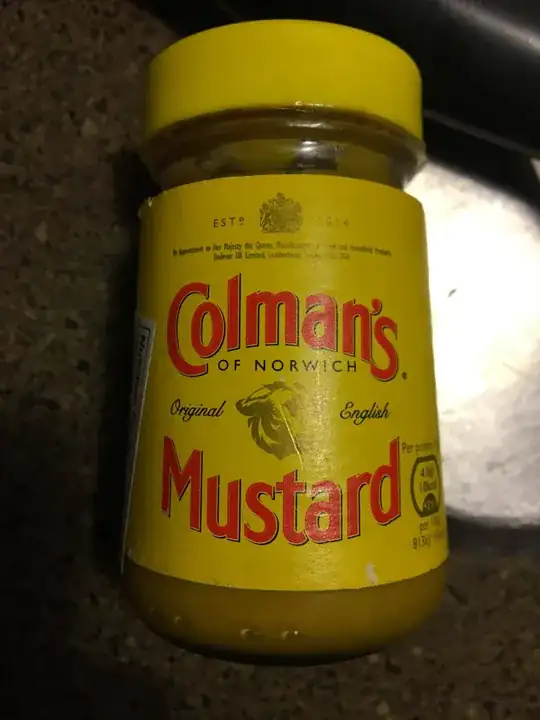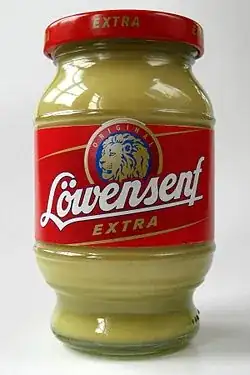I might have some details wrong, but I'm working from a text (Arctander) that is somewhat incomplete but way better than a lot of very dubious internet stuff I've been looking at.
So, most importantly, German mustard uses black mustard seeds vs yellow (aka white) seeds in English. The crucial difference is that brown mustard hydrolyses -- when crushed & mixed with water -- to produce the pungent and volatile assault on the senses called Allyl Isothiocyanate ... which is the major component of the mustard oil of commerce, produced by distilling hydrolysed black mustard, and not to be confused with culinary mustard oil that is pressed from white mustard seeds.
Meanwhile, English mustard is generally prepared from white mustard seeds, which -- crushed with water -- hydrolyse to produce ACRINYL Isothiocyanate, and which is also pungent but, unlike Allyl Isothiocyanate, is neither volatile nor a skin irritant.
But there's more. in commerce, German Prepared Mustard is the term for mixing ground black mustard seed with water, vinegar and salt; and English Prepared Mustard combines white mustard seed, water, vinegar and salt. Both of these are more pungent and more skin-irritating than their water-only counterpart, but I don't know if there's some extra chemical reaction beyond the mere presence of acetic acid.
So, basically German mustard is easily hotter than English mustard. except that ... then there's hot English mustard, which re-introduces the sensual assault as "horseradish", which like wasabi contains Allyl Isothiocyanate. and if you didn't know, most of your wasabi is green horseradish paste, but it's the same pungent chemical and genuine wasabi is fiendishly difficult to grow. And frankly, a lot of your hot English mustard is probably lit up with synthetic Allyl Isothiocyanate, which is now the predominant form of mustard essential oil aka volatile oil of mustard. So by venturing outside the species with horseradish or plain honest industrial chemicals, you can make hot English mustard arbitrarily hot while being limited to white mustard seeds. But before you get excited about weak German mustard know that German brands are just as capable of boosting Allyl Isothiocyanate, artificially or naturally, so it comes down to a brand-to-brand comparison, rather than country. But I'll allow that generally consumers expect hot English to be the hottest.
For clarity, only black seeds only are used to produce volatile oil of mustard, only white seeds are used to produce mustard cooking oil, and black mustard seed characterises German mustard but there's a lot of room to fiddle with heat. If your recipe doesn't specify hot English mustard, you probably want any yellow mustard that is milder than hot English but hotter than American.

